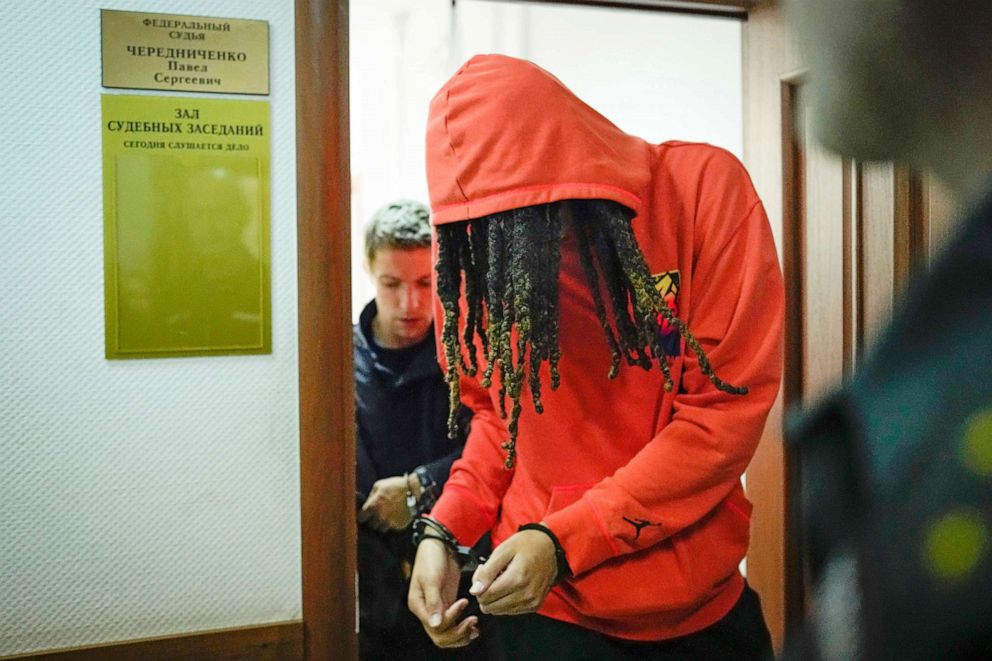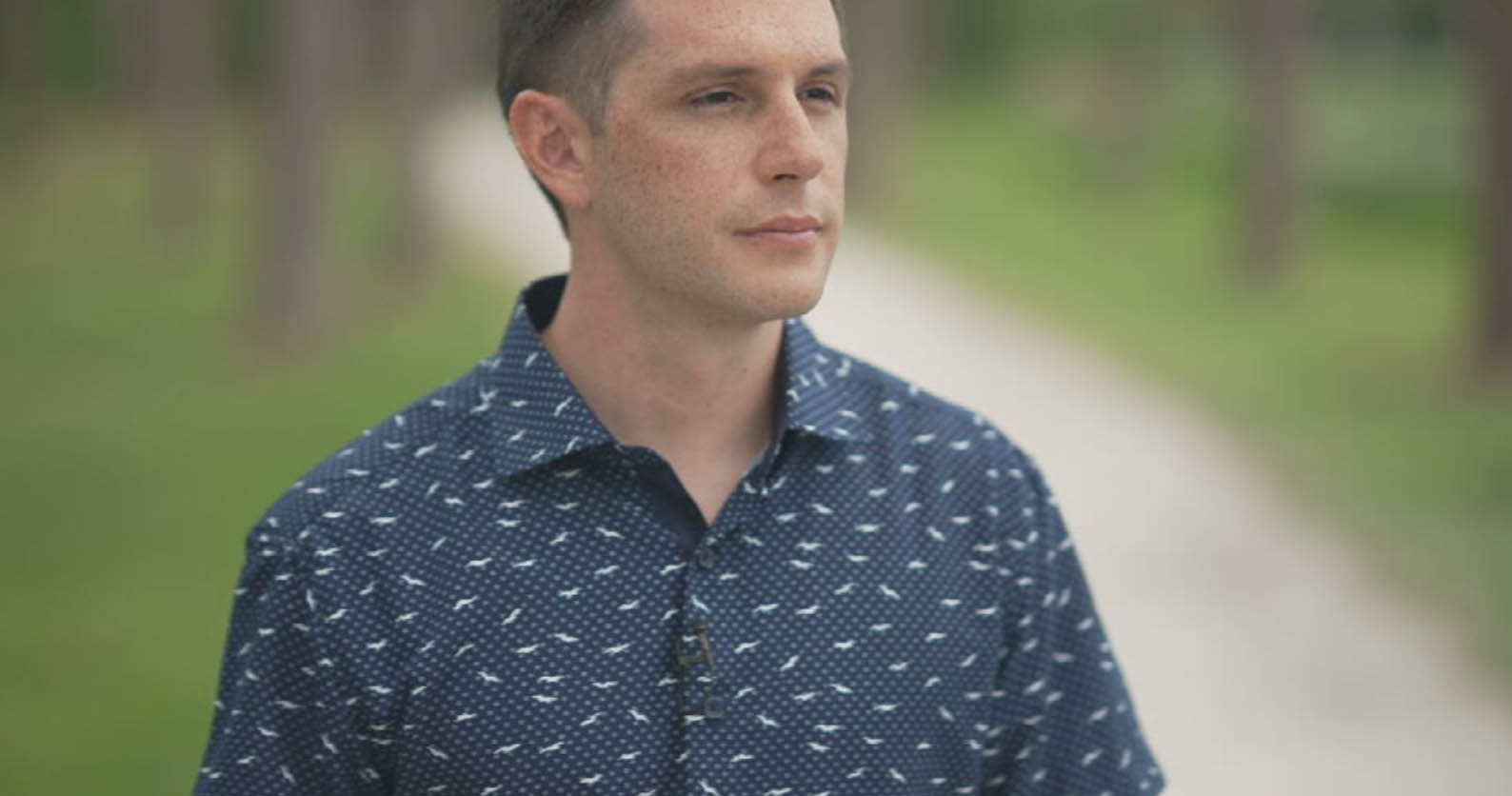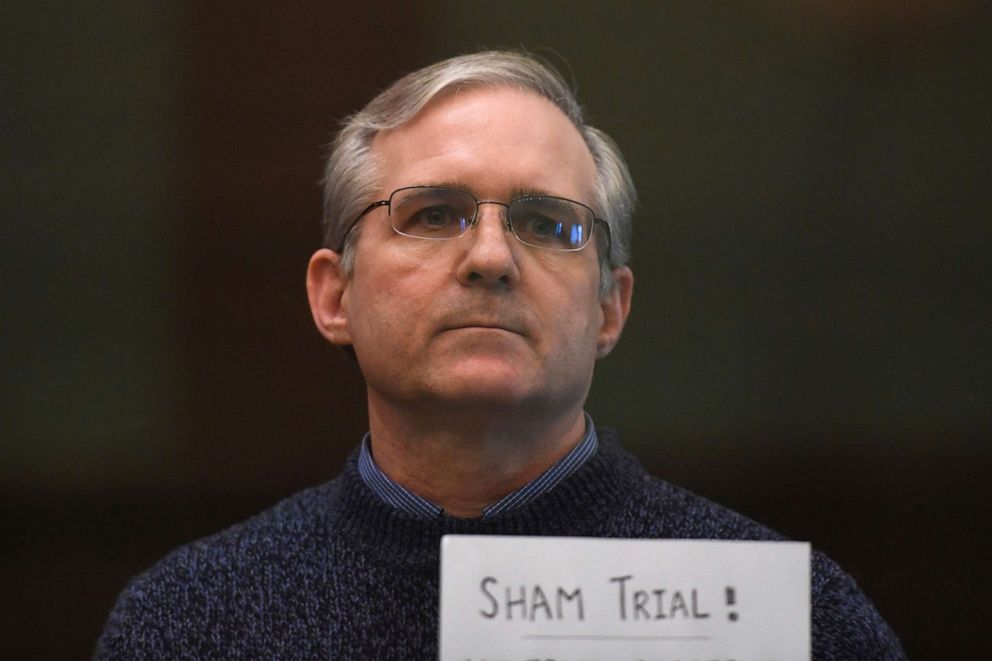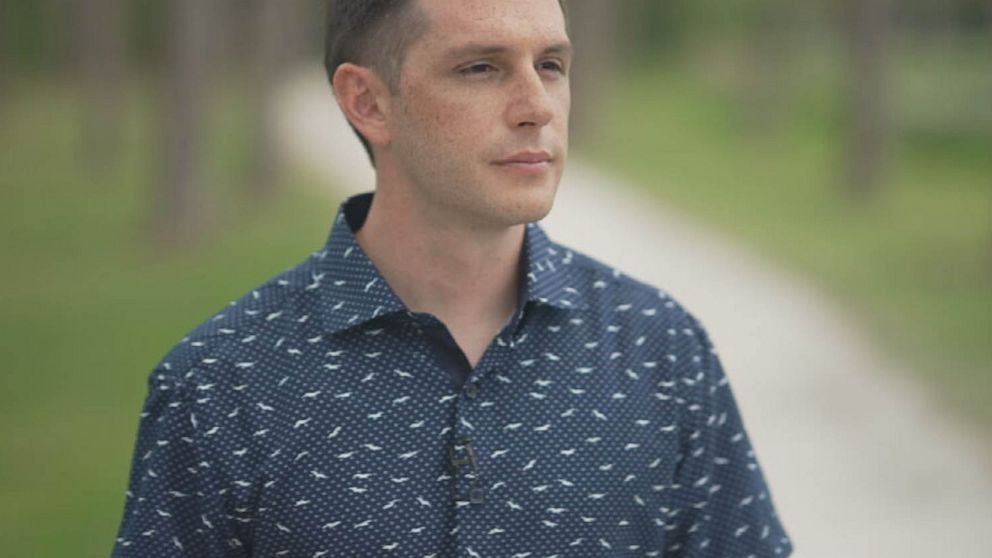Trevor Reed says US should trade Viktor Bout if it will free Americans held in Russia
Trevor Reed, the former U.S. Marine recently released after nearly three years in Russian captivity, has called on the U.S. government to negotiate a prisoner swap like the one that freed him to bring home Americans Paul Whelan, a former Marine, and WNBA player Brittney Griner, who are both being detained in Russia.
Reed and his parents, Joey and Paula Reed, told ABC News if it meant freeing Whelan and Griner, the United States should trade the Russian arms dealer Viktor Bout, who is serving a 25-year prison sentence, and who Russia has floated as a possible candidate for a swap.
"I think that the United States should make any type of agreement to get Paul out. And if that includes an exchange, I think they should absolutely do that," the 30-year-old Reed said in a lengthy interview with ABC News on Saturday, one of the first he has given since being freed.

Bout, dubbed the "Merchant of Death” by the media and a notorious weapons trafficker, was pursued for over a decade by Western governments and is widely believed to have ties to Russian intelligence. He was finally captured during a sting operation led by the U.S. Drug Enforcement Administration in Thailand and extradited to the U.S.
He was convicted in 2012 on federal narco-terrorism charges for agreeing during the sting to sell millions of dollars in weapons to Colombian terrorists who were purportedly targeting Americans. In reality, the supposed Colombian arms buyers were part of the DEA undercover sting.
From the moment of his arrest, Russia has sought to return Bout, attempted to block his extradition in 2008 and Russian state media and officials for years have pressed for his release. Since Whelan was seized in 2018, Bout has repeatedly been suggested by Russian state media as a possible trade for him and Reed and last week for Griner.
"Viktor Bout has already been in prison for 15 years,” said Reed, adding that any value he had for Russian intelligence was long since blown. "He's no longer a threat. He's paid for that crime. Maybe not as long as, you know, the U.S. government would have liked him to, but he has paid for that."
Reed said the United States should try to get the two Americans, who are both facing long sentences in Russia, freed in exchange for a man who will likely be released from prison in a few years.
"Fifteen years is not a joke in prison. And, you know, the fact of the matter is that Paul has another 13 years left in prison. And Brittney, who knows how long she's gonna be sentenced for? She may have ten years in prison. So you're getting two Americans who are going to have a huge amount of time left on their sentences for a guy who is getting out soon -- who has already been in prison for 15 years,” he said.
“And I think that they need to do that," he said. "If that's for Viktor Bout, I don't care. I don't care if it's 100 Victor Bouts. They have to get our guys out."
Whelan was arrested in December 2018 while visiting Moscow for a friend's wedding and charged with espionage by Russian intelligence officials. He is being held on espionage charges that the U.S. government says were also fabricated to take him as a bargaining chip. Whelan is in a prison camp in Mordovia, sentenced to 16 years.

Griner, a two-time Olympic gold medalist who plays for the Phoenix Mercury, was visiting Russia to play basketball in the off-season and was arrested in February at a Moscow area airport for allegedly having vape cartridges in her luggage that contained hashish oil -- an illegal substance in Russia.
The U.S. government considers Griner to be “wrongfully detained” in Russia, the State Department said.
“With this determination, the Special Presidential Envoy for Hostage Affairs Roger Carstens will lead the interagency team for securing Brittney Griner’s release," a U.S. State Department spokesperson told ABC News this month.
Reed was released from a Russian prison on April 27 when the Biden administration orchestrated a prisoner exchange with the Russian government for Konstantin Yaroshenko, a pilot from Russia who was sentenced in 2011 to 20 years in prison for conspiring to smuggle cocaine into the United States.
American administrations are traditionally reluctant to make prisoner exchanges, fearing that it sets a precedent that encourages hostile governments to seize more Americans.

Reed rejected that position, saying such governments would continue to target Americans regardless and were already doing so.
“That's completely inaccurate. That's not a concern at all, because, you know, countries like, you know, Russia, China, Venezuela, Rwanda, Iran, Syria, places like that need absolutely no incentive to kidnap Americans,” he said.
"Even if they didn't get anything out of it, just for the simple fact that they could show the United States that we have your citizens here and that we're not scared of you,” he said.
Reed’s father, Joey Reed, who spent more than a year in Russia trying to free his son and picketed the White House, said he believed the government needed to move with more urgency.
“Don't get me wrong; we're super thankful that President Biden made the decision to trade for Trevor. And what we want is we want that to continue," Joey Reed said. "If there's no other way to bring an American citizen home, do it. Don't wait until they've been there 20 years. Don't wait until they're near death."
In an interview with ABC News earlier this month, Paul Whelan's brother, David, said Paul spoke with his parents after Reed's release and said the news hit him hard.
"He asked, 'Why was I left behind?'" David Whelan said. "And we still don't really have a good answer for that."
Trevor Reed told ABC News that he's speaking out "in order to make the American people aware that this is not an isolated situation."
"We have political prisoners all over the world who are suffering and who need our help," Reed said.
Speaking of Whelan, Reed became emotional.
"He was in some worse prisons than I was. His situation is a lot worse than mine and we need to do everything possible to get him out at any cost," Reed said.
Reed said that when he found out his release was part of a prisoner exchange, he assumed Whelan would be freed, too. But Whelan was left behind.
"I thought that that was wrong, that they got me out and not Paul," Reed said. "I knew that as soon as I was able to that I would fight for him to get out and I would do everything I could to get him out of there. The United States got me out, but they left him there. I can't describe to you how painful that feeling is."




